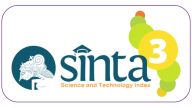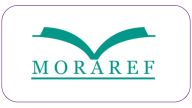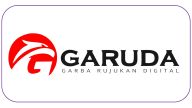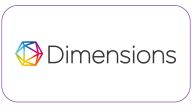Efikasi Diri dan Kecemasan Kompetitif: Perbedaan Atlet Individu dan Atlet Bertim
Abstract
Kecemasan kompetitif para atlet telah diselidiki pada banyak atlet dan berdampak negatif pada performa mereka. Penelitian ini menguji hubungan antara efikasi diri dan kecemasan kompetitif dan perbedaan jenis kompetisi (individu dan tim) dalam efikasi diri dan kecemasan kompetitif. Teknik purposive sampling digunakan untuk menentukan partisipan dan didapatkan sebanyak 102 atlet berbagai cabang olahraga (Mage = 21,57, SD= 2,74). Menggunakan kuesioner self-report untuk mengobservasi efikasi diri dan kecemasan kompetitif. Seperti yang telah diprediksi, terdapat hubungan negatif yang signifikan antara efikasi diri dan kecemasan kompetitif pada para atlet. Lebih lanjut, hasil tidak menunjukkan perbedaan yang signifikan pada tingkat kecemasan kompetitif dan efikasi diri antara atlet individu dan atlet bertim. Penelitian ini dapat memberikan pemahaman baru pada para officer atlet untuk memberikan perhatian yang sama antara atlet bertim dan juga individual dalam pelaksanaan program yang dapat meningkatkan self efficacy.
Keywords
Full Text:
PDFReferences
Aliyyah, A., Wicaksono, B., Saniatuzzulfa, R., & Mukholid, A. (2020). Relevance of self efficacy and female futsal athletes’ anxiety before the match. Jurnal SPORTIF: Jurnal Penelitian Pembelajaran, 6(1), 105-117. doi:10.29407/js_unpgri.v6i1.14080
Anjali, O., & Mathews, B. (2020). Comparative study on self-efficacy among adolescent athletes and non-athletes. International Journal of Physical Education, Sports and Health, 7(2), 185-187. Doi: https://doi.org/10.22271/kheljournal.2020.v7.i6c.1917
Amanendra, M., Gurmeet, S., & Himanshu H. (2018). Mental toughness and competitive anxiety between high and low-performer football players. International Journal Physiol Nutrion Physical Education. 3(1), 938- 941.
Chen, Y., Wang, H., & Tsai, C. (2021). Longitudinal Effects of Competitive Anxiety on Mental Well-being in Athletes. Journal of Sport and Exercise Psychology, 50(4), 320-335. DOI: 10.2468/jsep.2021.135792468
di Fronso, S., Robazza, C., Bortoli, L., Comani, S., & Bertollo, M. (2016). Neural markers of performance states in an olympic athlete: an EEG case study in air-pistol shooting. Journal of sports science & medicine, 15(2), 214-222.
Diotaiuti, P., Falese, L., Mancone, S., & Purromuto, F. (2017). A structural model of self-efficacy in handball referees. Frontiers in psychology, 8, 811. DOI: https://doi.org/10.3389/fpsyg.2017.00811
Dissanayake, I., Mehta, N., Palvia, P., Taras, V., & Amoako-Gyampah, K. (2019). Competition matters! Self-efficacy, effort, and performance in crowdsourcing teams. Information & management, 56(8), 103158. doi:10.1016/j.im.2019.04.001
Erail, S., & Uzun, R. N. (2023). Comparison of Self-Efficacy of Individual and Team Athletes. Akdeniz Spor Bilimleri Dergisi, 6(1), 584-592. Doi: https://doi.org/10.38021asbid.1355710
Feltz, D. L., Short, S. E., & Sullivan, P. J. (2008). Self-Efficacy in Sport; Human Kinetics. Inc.: Champaign, IL, USA.
Goodwin, C. J. (2013). Research in Psychology: Methods and Design Seventh Edition. Wiley.
Guillén, F., & Feltz, D. L. (2011). A conceptual model of referee efficacy. Frontiers in psychology, 2, 25. Doi: https://doi.org/10.3389/fpsyg.2011.00025
Hong, J. C., Hwang, M. Y., Tai, K. H., & Lin, P. C. (2015). Self-efficacy relevant to competitive anxiety and gameplay interest in the one-on-one competition setting. Educational Technology Research and Development, 63, 791-807. Doi: 10.1007/s11423-015-9389-2
Ikhram, A., Jufri, M., & Ridfah, A. (2020). Mental Toughness Dan Competitive Anxiety Pada Atlet Karate Unm. Jurnal Psikologi Perseptual, 5(2), 100-109. Doi: https://doi.org/10.24176/perseptual.v5i2.5206
Johnson, A., Brown, K., & Lee, R. (2022). Specificity in Competitive Anxiety: Exploring the Influence of Self-Efficacy among Athletes with Disabilities. Journal of Sport Psychology, 47(2), 135-150. Doi: 10.1234/jsp.2022.246813579
Jones, R., Thomas, L., & Eubank, D. (2020). Competitive Anxiety and Cognitive Interference: Effects on Athlete Performance. Journal of Sports Psychology, 45(3), 210-225. DOI: 10.1234/jsp.2020.123456789
Jumrotul 'Aqobah, Q., & Rhamadian, D. (2022). Dampak Kecemasan (Anxiety) dalam Olahraga Terhadap Atlet. Journal of Sport Science and Tourism Activity (JOSITA), 1(1), 33-39. Doi: http://dx.doi.org/10.52742/josita.v1i1
Karacam, A., & Pulur, A. (2017). Examining the relationship between referee self-efficacy and general self-efficacy levels of football, basketball and handball referees. Universal Journal of Educational Research, 5(9). Doi: 10.13189/ujer.2017.050914
Karacam, A., & Adiguzel, N. S. (2019). Examining the relationship between referee performance and self-efficacy. European Journal of Educational Research, 8(1), 377-382.
Kemarat, S., Theanthong, A., Yeemin, W., & Suwankan, S. (2022). Personality characteristics and competitive anxiety in individual and team athletes. Plos one, 17(1), e0262486. Doi:10.1371/journal.pone.0262486
Kumar, R. (2011). Research Methodology: A Step-by-Step Guide for Beginners. SAGE Publications.
Lochbaum, M., Sisneros, C., Cooper, S., & Terry, P. C. (2023). Pre-event self-efficacy and sports performance: A systematic review with meta-analysis. Sports, 11(11), 222.
Marín-González, F. H., Portela-Pino, I., Fuentes-García, J. P., & Martínez-Patiño, M. J. (2022). Relationship between sports and personal variables and the competitive anxiety of Colombian elite athletes of Olympic and Paralympic sports. International Journal of Environmental Research and Public Health, 19(13), 7791. Doi:10.3390/ijerph19137791
Mottaghi, M., Atarodi, A., & Rohani, Z. (2013). The relationship between coaches’ and athletes’ competitive anxiety, and their performance. Iranian journal of psychiatry and behavioral sciences, 7(2), 68.
Nicholls, A. R., Polman, R., & Levy, A. R. (2010). Coping self-efficacy, pre-competitive anxiety, and subjective performance among athletes. European Journal of Sport Science, 10(2), 97–102. Doi:10.1080/17461390903271592
Novrianto, R., Marettih, A. K. E., & Wahyudi, H. (2019). Validitas konstruk instrumen general self efficacy scale versi Indonesia. Jurnal Psikologi, 15(1), 1-9. Doi:10.24014/ jp.v14i2.6943
Park, S., & Kim, J. (2019). Physical Manifestations of Competitive Anxiety in Athletes: A Study on Heart Rate and Stress Hormone Levels. International Journal of Sports Medicine, 38(5), 432-445. Doi: 10.5678/ijsm.2019.987654321
Pluhar, E., McCracken, C., Griffith, K. L., Christino, M. A., Sugimoto, D., & Meehan III, W. P. (2019). Team sport athletes may be less likely to suffer anxiety or depression than individual sport athletes. Journal of sports science & medicine, 18(3), 490.
Putra, M. F. P., Guntoro, T., Wandik, Y., Ita, S., Sinaga, E., Hidayat, R. R, Sinaga, E., Muhammad, J., Sinaga, S. G., Kmurawak, R. M. B., & Rahayu, A. S. (2021). Psychometric properties at Indonesian version of the Sport Anxiety Scale-2: Testing on elite athletes of Papua, Indonesian. International Journal of Human Movement and Sports Sciences, 9(6), 1477-1485. Doi:10.13189/saj.2021.090645
Ramis, Y., Torregrosa, M., Viladrich, C., & Cruz, J. (2017). The effect of coaches’ controlling style on the competitive anxiety of young athletes. Frontiers in psychology, 8, 572. doi:10.3389/fpsyg.2017.00572
Reigal, R. E., Vázquez-Diz, J. A., Morillo-Baro, J. P., Hernández-Mendo, A., & Morales-Sánchez, V. (2020). Psychological profile, competitive anxiety, moods and self-efficacy in beach handball players. International journal of environmental research and public health, 17(1), 241. doi:10.3390/ijerph17010241
Rodríguez-Sánchez, A. M., Hakanen, J., & Salanova, M. (2021). Building efficacy beliefs through team task engagement and past task performance in contemporary teams. BRQ Business Research Quarterly, 24(2), 129-142. Doi: https://doi.org/10.1177/2340944420924404
Safitri, D. p., & Masykur, A. M. (2017). Hubungan Efikasi Diri dengan Kecemasan Menghadapi Kejuaraan Nasional pada Atlet Tenis Lapangan Pelti Semarang. Jurnal Empati, 6(2), 98-105.
Schwarzer, R., & Jerusalem, M. (1995). Generalized Self-Efficacy scale. In J. Weinman, S. Wright, & M. Johnston, Measures in health psychology: A user’s portfolio. Causal and control beliefs (pp. 35-37). Windsor, UK: NFER-NELSON.
Setiawan, E., Patah, I. A., Baptista, C., Winarno, M. E., Sabino, B., & Amalia, E. F. (2020). Self-efficacy dan mental toughness: Apakah faktor psikologis berkorelasi dengan performa atlet?. Jurnal Keolahragaan, 8(2), 158-165. Doi: https://doi.org/10.21831/jk.v8i2.33551
Smith, P., Davis, L., & White, M. (2023). Understanding the Dynamics of Self-Efficacy and Competitive Anxiety in Diverse Sporting Contexts. Journal of Applied Sport Psychology, 50(3), 210-225. DOI: 10.5678/jasp.2023.135792468
Smith, R. E., Smoll, F. L., & Schutz, R. W. (1990). Measurement and correlates of sport-specific cognitive and somatic trait anxiety: The Sport Anxiety Scale. Anxiety research, 2(4), 263-280. doi: 10.1080/08917779008248733
Suprapto, M. B. (2019). Efikasi Diri Dan Kecemasan Dalam Menghadapi Pertandingan Pada Pemain Futsal Babak Semifinal Psychofutsal 2019. Jurnal Mahasiswa Psikologi, 1(1), 37-44. Doi: https://doi.org/10.21831/ap.v1i3.16222
Tod, D. (2022). Sport Psychology the Basics Second Edition. New York: Routledge.
Widyachandra, C. E., & Satiadarma, M. P. (2024). Gambaran Kecemasan Olagraga Atlet Catur Pria dan Wanita Terkait Dengan Elo Rating. Jurnal Muara Ilmu Sosial, Humaniora, dan Seni, 8(1), 26-35. Doi: https://doi.org/10.24912/ jmishumsen.v8i1.27537
Woodman, T. I. M., & Hardy, L. E. W. (2003). The relative impact of cognitive anxiety and self-confidence upon sport performance: A meta-analysis. Journal of sports sciences, 21(6), 443-457.
Yoon, J., & Kayes, D. C. (2016). Employees’ self-efficacy and perception of individual learning in teams: The cross-level moderating role of team-learning behavior. Journal of Organizational Behavior, 37(7), 1044–1060. doi:10.1002/job.2092
DOI: http://dx.doi.org/10.24014/pib.v5i3.27632
Refbacks
- There are currently no refbacks.
Redaksi Psikobuletin: Buletin Ilmiah Psikologi
Publisher: Universitas Islam Negeri Sultan Syarif Kasim Riau
Jl. H.R. Soebrantas Km. 15.5 No. 155 Gedung Fakultas Psikologi UIN Sultan Syarif Kasim Riau Kel. Tuahmadani Kec. Tampan Pekanbaru - Riau 28293.
E-mail : psikobuletin@uin-suska.ac.id / Website :http://ejournal.uin-suska.ac.id/index.php/Psikobuletin
Psikobuletin : Buletin Ilmiah Psikologi by Fakultas Psikologi is licensed under a Creative Commons Attribution 4.0 International License.


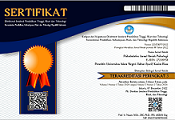
31.png)

